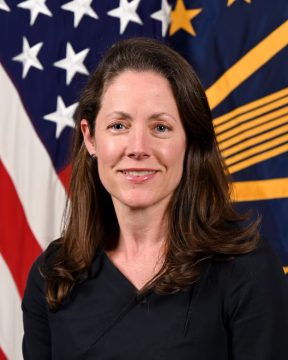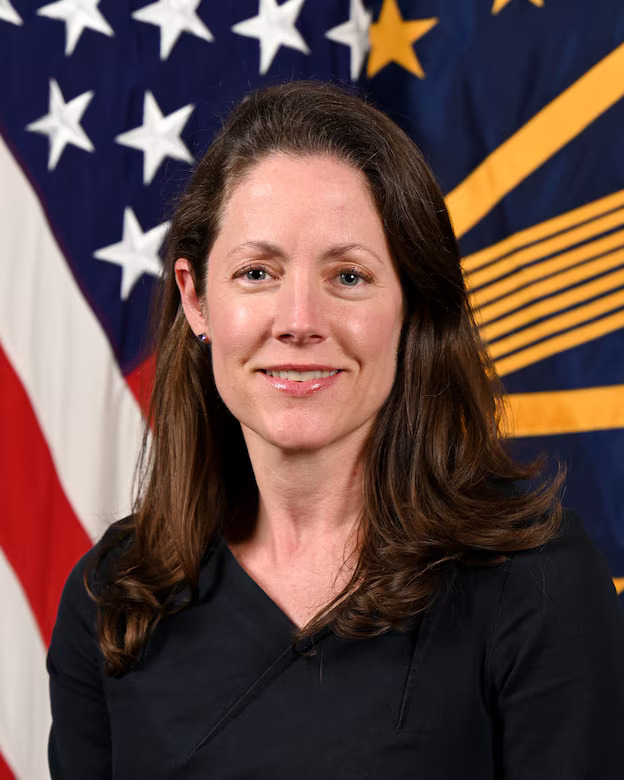This Spring Term, Lawrence University welcomed Maureen Farrell as the 2025 Distinguished Visiting Scarff Professor in the Government Department. Every year, this Professorship is chosen by the Stephen Edward Scarff Professor of International Affairs and Associate Professor of Government Jason Brozek. According to the Lawrence University website, the Scarff Professorship was created by Mr. And Mrs. Edward L. Scarff in 1989, in memory of their son, a 1975 Lawrence graduate, who died in an automobile incident in 1984. The purpose of the professorship, according to Brozek, is to allow Lawrentians to have meaningful connections and discussions with diplomats, ambassadors and foreign policy practitioners. Farrell currently serves as Vice President for Global Partnerships at Valar, an American strategic advisory and security company located in Nairobi, Kenya. She has worked in numerous Africa-facing agencies in both the public and private sector. She has also served as Director for African Affairs at the National Security Council and more recently was in charge of defence policy in Africa for the Department of defense, supporting both Republican and Democratic administrations on Capitol Hill.

Farrell said she accepted the Visiting Scarff Professor of International Studies position because it was an engaging opportunity for students to speak with practitioners in their fields of interest that she never had a chance to experience. She added that the position was a chance to foster understanding between people with different worldviews in a time of increasing political polarization.
“We all sit in our corners and complain with each other or like-minded friends about what we see and what we don’t like, and we don’t make the opportunity to try to build bridges with people who have different experiences,” Farrell said.
Getting to know Lawrence as one part of a larger Northeast Wisconsin community, according to Farrell, is a chance for her to learn about views about the US in international contexts from corners of the country she is unfamiliar with.
“[Some] people on this campus have an international flavor, some have a purely rooted Midwestern flavor,” Farrell explained. “And so, I was really excited to be grounded and humbled by this experience, to get a better understanding of what people are thinking about in terms of foreign affairs outside of the Washington bubble.”
Farrell recently taught a five-class discussion-based tutorial with Brozek from Friday, April 25 to Monday, May 5 on Mondays, Wednesdays and Fridays titled “America’s Role in the World.” According to Farrell, the course examined the U.S.’ international role and the global impact of the country’s interests as influenced by policies from Washington D.C.
“I’m really grappling with how to understand the various changes that are underway right now in our government and thinking about how to roll them up or sort of bucket them as part of a foreign policy doctrine under Trump,” Farrell said.
Farrell said “America’s Role in the World” focused on foreign policy doctrine, aiming to enhance understanding of the Trump administration’s doctrine and past actions through strategic framework. For Farrell, its key focus is understanding the ongoing changes within the government and being able to contextualize them as part of a foreign policy doctrine under Trump. Farrell believes understanding this administration facilitates the appreciation of broader trends in governance, rather than being solely focused on daily policy decisions. Farrell hoped that students would use the class as an avenue towards understanding U.S. foreign policy as ongoing and changing, as well as something that deserves historical appreciation. She said that this is especially important in an age of quick and accessible news media, adding that she hopes students used “America’s Role in the World” as an opportunity to understand news in a broader context rather than focusing too heavily on small details.
On Tuesday, April 29, Farrell met with Lawrentians in the Career Center for a Lunch ‘n’ Learn event, where she and attendees talked about career strategies in both the public and private sectors for Government, International Relations and other related majors. Farrell had three main pieces of advice for attending students. The first was to experience the workforce before pursuing a graduate education. She cited her own experience shifting from wanting to enter a career in public health fighting AIDS in Africa to focusing on defense and security after having field experience advising U.S. military officers on the sociocultural environment of East Africa in Djibouti. Farrell’s second piece of advice was to take risks in the professional world. She said though she did not know anything about outer space, she was one of the people who helped launch the U.S. Space Force in 2020. Likewise, she said she is undertaking work to co-author a piece on the importance of U.S.–Africa cooperation in space. According to her, these two projects would end up boosting her professional reputation and connecting her with potential partners and employers. On this strain, Farrell said her last piece of advice was to invest in building your network, attributing networking as the reason she got several of her jobs and arguing that it needs to be a feature of any job search strategy. The event was followed by a Q&A session, where students inquired about numerous points she had made, including the future of job prospects in Washington D.C. with the rise of artificial intelligence (AI) to finding a work-life balance in governmental careers.
In addition to the tutorial and the Lunch ‘n Learn event, Farrell presented a lecture Thursday, May 1, in Wriston Auditorium as part of the Povolny Lecture Series in International Studies. The lecture opened with her central questions: “What is America’s role in the world?” and “Why do we engage in foreign policy?”. Farrell stated the answers involve advancing U.S. national security; promoting economic prosperity, global security and stability; and — at least in the past — exporting American values like religious freedom, democracy and human rights. She then outlined the returns on U.S. engagement abroad, including trade relationships, security and alliances. The lecture continued with a discussion of shifts in U.S. foreign policy. Farrell analyzed actions of the current administration, including the recent installation of tariffs. She concluded her lecture by outlining the perceived consequences of Trump’s foreign policy actions on international perceptions of the U.S. She stated that “America First” messaging is interpreted globally as a retreat from international engagement. The implementation of high tariffs, according to Farrell, signals unreliability, particularly to nations with established relationships with the U.S. She then assessed the U.S. decision to abstain from G20 forum of major economic powers communicates as a reluctance to engage in multilateral cooperation. Farrell identified the shift in the U.S. position on the Russia-Ukraine conflict, specifically the assertion that Ukraine initiated the war, as generating confusion among other countries. Farrell characterized the “SignalGate” incident as projecting an image of internal chaos. Finally, she stated that public pronouncements regarding the potential acquisition of Canada, Panama and Greenland are perceived as a disregard for national sovereignty. These actions are causing other countries to rething how they engage with the United States. The lecture was followed by a Q&A session, where Farell asked the audience for their input and critiques on her presentation.

